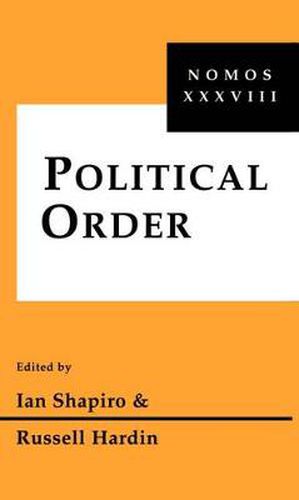Readings Newsletter
Become a Readings Member to make your shopping experience even easier.
Sign in or sign up for free!
You’re not far away from qualifying for FREE standard shipping within Australia
You’ve qualified for FREE standard shipping within Australia
The cart is loading…






The collapse of the Soviet empire stands as a dramatic reminder that political institutions are human creations that can be designed more or less well. The question of what constitutes a viable political order is as old as it is profound, and is a central part of the works of such thinkers as Plato, Aristotle, Machiavelli, Hobbes, Locke, Montesquieu, and the American Founders.
In eighteen original essays, Political Order presents the work of major scholars such as Robert Dahl, John Gray, Jennifer Nedelsky, Pasquale Pasquino, James Scott, Karen Orren, Steven Skowronek, Walter Dean Burnham, Morris Fiorina, and Norman Schofield who address some of the most pressing questions about political order. Under what conditions do we get political order rather than political chaos? How is political order sustained once it has been created? Do constitutions and electoral systems matter, and if so how much? Is there one best type of political order, and, if not, what is the range of viable possibilities and how should they be evaluated?
$9.00 standard shipping within Australia
FREE standard shipping within Australia for orders over $100.00
Express & International shipping calculated at checkout
The collapse of the Soviet empire stands as a dramatic reminder that political institutions are human creations that can be designed more or less well. The question of what constitutes a viable political order is as old as it is profound, and is a central part of the works of such thinkers as Plato, Aristotle, Machiavelli, Hobbes, Locke, Montesquieu, and the American Founders.
In eighteen original essays, Political Order presents the work of major scholars such as Robert Dahl, John Gray, Jennifer Nedelsky, Pasquale Pasquino, James Scott, Karen Orren, Steven Skowronek, Walter Dean Burnham, Morris Fiorina, and Norman Schofield who address some of the most pressing questions about political order. Under what conditions do we get political order rather than political chaos? How is political order sustained once it has been created? Do constitutions and electoral systems matter, and if so how much? Is there one best type of political order, and, if not, what is the range of viable possibilities and how should they be evaluated?